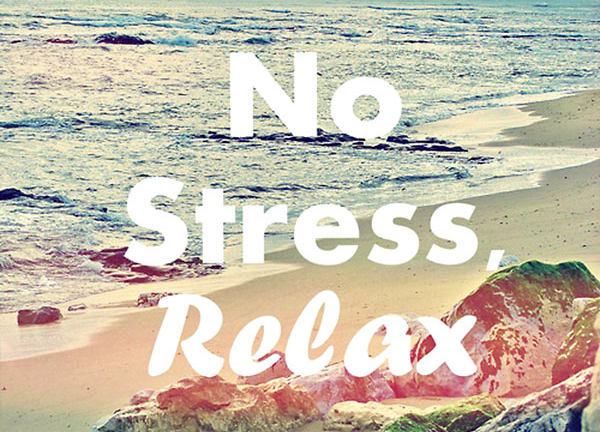Stress & Chiropractic Care

Let’s face it, in reality, stress is apart of modern living and there are elements in all of our lives. In order to begin the process of de-stressing your life, you need to determine where it is coming from.
Figuring out what is causing your stress could be a simple or more complex task, depending on what is going on in your life at the current moment, or what has happened in the previous weeks, months of even years! A few of the major causes of stress include, personal debt and finances, family and friends, health related issues, death, relationships, marriage and divorce as well as your career. And trust me when I say… the list could go on!
Once you’ve determined what is the root cause for your stress, you are able to get an idea as to what sort of stress you are suffering from. There are a few different types of stress, categorized by their different characteristics, symptoms and treatment approaches! These types of stress are known as Acute Stress, Episodic Acute Stress and Chronic Stress.
What is Acute Stress?
This being the most common of all three, it is likely this is the stress that accrues in daily life, in conjunction with specific tasks, for example, when you decide to take that impromptu mini-vacay to Whistler with the girls, do a little shopping, have a few cocktails, then come home to realize your short for that cellphone bill with extra data charges thanks to Pinterest! Basically the pressures and demands of daily life cause it. Although at first acute stress may lead to a bit of a thrill, or excitement, however it really is exhausting!
Thankfully, Acute Stress is short term, hence the name! Therefore, it really doesn’t have the time to do major damage to your body, unlike long-term stress! The most common symptoms related to Acute Stress are:
- Emotional Distress – anger, irritability, anxiety and depression
- Stomach, Gut and Bowel Problems – heartburn, flatulence, diarrhea, irritable bowel syndrome, acid stomach and constipation.
- Over-arousal – high blood pressure, sweaty palms, dizziness, migraine headaches, cold hands/feet, chest, pain, high heart rate, and heart palpitations.
What is Episodic Acute Stress?
Have you ever known a person that is always ‘Stressed out’, who stretches him or herself far to thin, always late and in a rush, who seem to relish in the chaos? Well that is basically the definition of Episodic Acute Stress. It is the same as acute stress, however the frequency of stressful events is much higher.
Episodic Acute Stress has another form however. I’m almost positive you’ve heard the term ‘Worry Wart’, that person you know who is constantly fretting, foresees every possibility for a catastrophic event in their life, believe something awful is going to happen around every corner.
Yes, Episodic Acute Stress is treatable, however it will take a little more time and dedication than Acute Stress. Due to the personality that most sufferers hold, they are quite resistant to change, but we promise with dedication to treatment, help from a professional and the promise of a light at the end of the tunnel, you can be cured! Symptoms of Episodic Acute Stress are due to over-arousal:
- Tension Headaches
- Intermitted Depression, and Anxiety Disorders.
- Migraines
- Hypertension
- Chest Pain
- Heart Disease
What is Chronic Stress?
Remember when I mention that you may obtain a slight thrill from Acute Stress? Well Chronic Stress is the complete opposite. Chronic stress is the result of emotional wear and tear, eating away at a person after days, weeks, month, and years of havoc. Sufferers not longer see the light at the end of the tunnel; it’s the stress of unrelenting pressure and demands. Eventually sufferers give up, and stop searching for help or a solution.
Some instances of Chronic Stress can stem back from as far as traumatic early childhood experiences, things that leave that forever-aching feeling, the relentless pain that is always present. The sad thing is, sufferers being to feel as though this is just a part of their daily life. They become used to the pain and sufferings that come along with Chronic Stress. When an experience profoundly affects someone’s personality, his or her view of the world changes drastically. They build their own belief system. The world becomes a scary place, full of threats of more pain; they try to hide the pain of that experience, which only gets worse as time passes.
Due to the fact that chronic stress is such a long-term issue, the symptoms are very difficult to treat. It may require extended medical, as well as behavioral treatment and levels of stress management. More often then not, sufferers of chronic stress become so familiar with their symptoms, it goes left untreated, therefore chronic stress kills many, through heart attack and stroke, violence and suicide. Psychological problems such as clinical depression, and post-traumatic disorder can also originate from chronic stress. Some symptoms of Chronic Stress include:
- Dry Mouth
- Difficulty Breathing
- Pounding Heart
- Stomach Ache
- Headache
- Frequent Urination
- Muscle Tightness and Tension
- Irritability, Problems with Concentration
- Difficulty Sleeping, Frequent Fatigue
CRAZY FACT! It is estimated that approximately 75%-90% of doctor visits are stress related!
So what can we try to do in our daily lives to help reduce the amount of stress we go through as individuals? Try these 10 things!
- ACCEPT WHAT WE CANNOT CHANGE:In order to become accepting to the things we cannot change in our day-to-day lives, we must first start by making choices that are realistic and within our reach.
- CHOOSE FRIENDS WISELY:Your friends should be people that are there to ensure we are being the best we can be. They increase our strength as individuals, and help us to creative innovative solutions to stressful situations. They are our support system.
- MAKE DECISIONS: Being indecisive can be very stressful. Be sure to make wise decisions and follow through on them. If a bad decision is made, be sure to reevaluate.
- ORGANIZE: Disorder causes stress. The most beneficial part of being organized is the ability to judge what will happen, giving you a sense of control, which will in turn reduce stress.
- LEARN FROM STRESS: Be sure to stop and thing of how to use a stressful situation or crisis in your favor. What can you do to make this situation improve, hence the saying ‘Make lemonade out of the lemons in life’
- MAINTAIN A SENSE OF HUMOR: The ability to laugh at yourself is such a benefit! With the simple act of laughing, you are able to release stress from the inside! PS. Laughing produces fewer wrinkles than worrying 😉
- STOP AND LOOK AT YOURSELF: Ensure your learning the cues to understand and recognize the signs of stress in your life, such as exhaustion, anger, and poor sleep quality. This is the first step towards making stress work for you. Be Proactive!
- CREATE STRESS REDUCING ENVIRONMENT: Everything from the colour of the floor, to the colours on the walls can reduce stress. Hues such as soft blues, and cool greens are seen as positive colours, are known to create a sense of well-being.
- STOP SAYING YES TO EVERYTHING: As you grow, you will be to recognize your strengths. Be sure to focus on taking the time to do a project that focuses on them. Over-exerting yourself will result in disappointment, and loss of control, which creates an un-needed stressful environment.
- LEAVE TIME FOR THE UNEXPECTED: As time moves forward, you will develop the ability to cope. Time is needed to perceive a crisis and use our natural internal and external resources.
As for how we here at Harmony Chiropractic & Wellness Clinic can help you, we can happily say that chiropractic care can help you manage your stress and symptoms. Seeing as the spine, which happens to be the main root of our body’s nervous system is our specialty! One of the biggest effects of chronic stress is muscle tension, which causes uneven pressure on the skeleton, so in turn will lead to subluxations (misalignments). Chiropractic adjustments help to ease the tension of muscles, which will ease the subluxations, so stress is relieved from certain areas of your skeleton. It can also reduce irritation to the spinal nerves, and improve your blood circulation.
Stay Healthy and Be Happy and Don’t Stress:)
Until Next Time……

